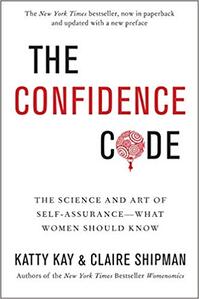|
This past April, when I first learned of the Muse & the Marketplace writing conference, I put it on my ideal calendar for 2020. Mingle with writers? Learn about the industry? Potentially speak with agents and editors?? For several months, I dreamed about the conference, framing it as the gateway to setting foot into the publishing world. When I learned that Grubstreet members were entitled to advance registration, I signed up and eagerly awaited my invitation to take the first steps. But then the email popped up in my inbox, and I found I didn’t feel ready. I wanted to speak with an agent about my writing, but whom to choose? And why would they even bother with someone like me -- someone who has only taken one class, who has never been published, who hasn’t even finished the first draft of my current project? I felt massively under qualified to take the next steps in fulfilling the dreams I hold so tightly. And yet, I knew the conference would fill up quickly. My fear of missing out won me over and led me not only to sign up but to select an agent as well. All of this sent me in a mental tailspin as I realized I had also silently declared that I would finish my manuscript, and polish a twenty-page submission and a tantalizing pitch all by early March. As I have shared my project with test readers, most ask how close I am to being finished. “Getting there,” I reply, admitting that some days I’m not sure how much more I have to write, and most days the pace can vary so widely that I have no idea how long it will take me to complete my story. One friend, eager to see me realize my dreams, suggested, “What you’ve shown me reads like a book. Sure, there are some gaps here and there, but can’t you just get it to be good enough - have most of it done - and start sending it out there?” She made an excellent point. Sure, every writing coach and all published advice strongly advocates for finishing and polishing your work before submitting. And yet, tell that to a perfectionist and the work could stay safely tucked away in a private writing desk for years before the writer -- ahem, aka me -- feels it’s good enough.
All of this leads the authors to conclude that, “essentially, women feel confident only when we are perfect. Or practically perfect.” (21)
Why is that? Why do women struggle with confidence more than men? And what’s wrong with wanting to be perfect? Well, besides driving us crazy, the authors explain, this type of mindset can keep us from reaching our goals. Kay and Shipman lead the reader along a meandering path as they interview confident women in industry, politics and the military and dig into the theories in current neuroscience and psychology research in order to learn where confidence comes from and how women can get more of it. While their research is far from rigorous, they are able to make some convincing conclusions. Bottom line, while you may be born with a certain chemical makeup that predisposes you to be more or less confident, there are plenty of tools within your control that you can use to boost whatever confidence you do have. For sure, sit up straight and get comfortable with taking up space. Speak up, but remember to be authentic. Break down your goals into manageable parts and tackle them one at a time. Put in the hard work, sure, but be willing to turn in that work and voice those ideas frequently. “Fail fast” as the tech industry calls it, so you can get back out there and try again. In short: “Think less. Take action. Be authentic.” (202) I like to think that as I approach the Muse conference this April, that I am following their advice. Yes, I have dreamed of becoming a writer. One year ago, those dreams were still safely all within my personal space. But now, one year later, I have taken a class, I have formed a writing group, and I registered for a conference. Now, to finish my chapters, rethink my pitch, trim and hone the text...and then, polish my submission piece. As they write, “Small steps prepare you for taking more meaningful risks. It’s called the exposure technique.” (142) Like the confident successful women discussed in their book, I would like it said of me that, “She took risks, she was persistent, she worked hard, and even failed. And it worked. Whatever she hadn’t inherited, or soaked up as a child, she created.” (136) Stay tuned. Winter’s underway for now, but spring is coming, with more opportunities to summon courage and foster new connections, to put myself out there and introduce my ideas to the writing world.
0 Comments
Leave a Reply. |
Author's Log
Here you will find a catalog of my writing and reflections. Archives
December 2022
|
